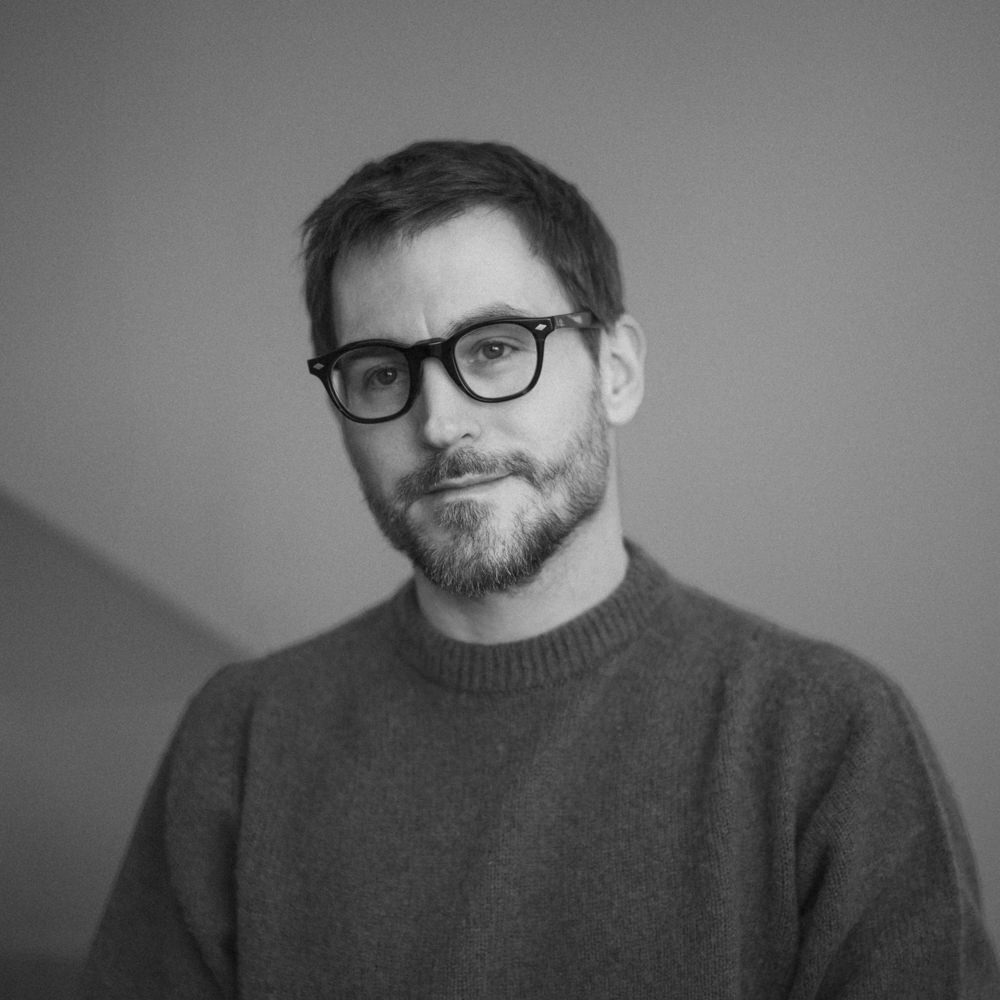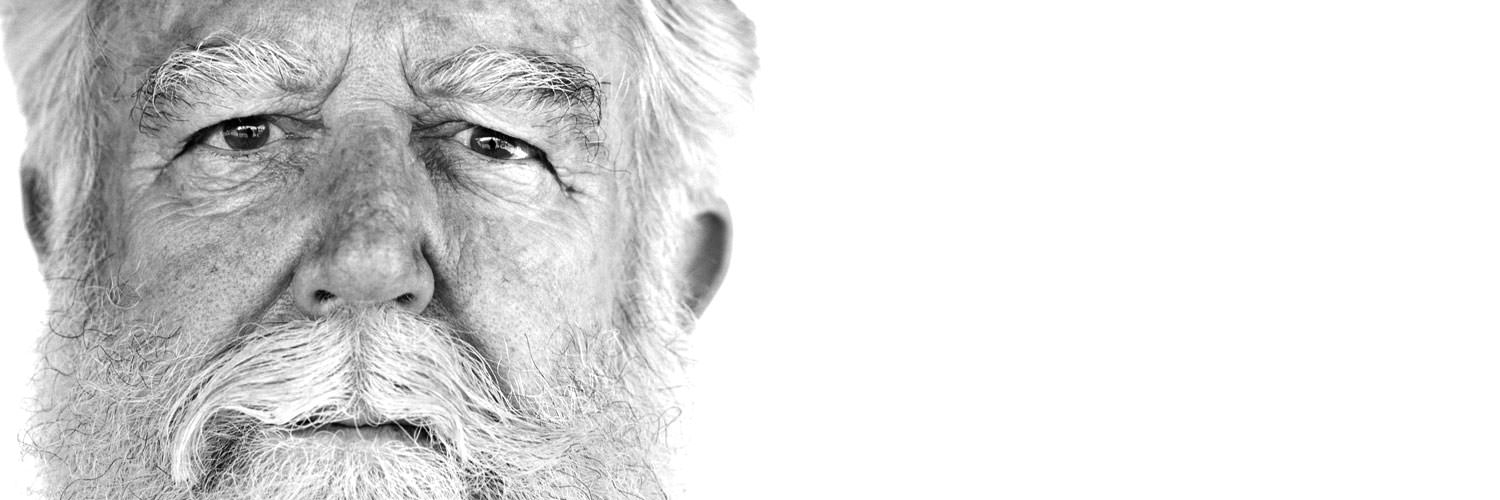
An Invitation — Roden Explorers
Join me on an adventure in mailing listing
My first exposure to James Turrell came sometime in winter 2003 following a harrowing drive through the Japanese night. I was in a van with two Americans, a Japanese, an older — supposedly famous — French illustrator, a Belgian artist, a Swedish photographer, and another Frenchman, drunk — quite obviously so — and driving.
That configuration didn’t last very long.
Despite the fact that many of us had never before met, the consensus quickly shifted. The drunk Frenchman — against his vocal pleading that He was fine! He can drive just fine! — would be replaced as driver. I was the only other passenger with an international license.
So it came to be that I drove this group of rag-tag bohemians and artists and drunkards through the night — my first time driving such a large vehicle, and also my first time driving in Japan. We hurtled down freeways swaddled in countryside darkness, past rice fields, music blaring, joyful, multi-accented English bouncing all over the interior, the Frenchman snoring in a heap in the back.
We were bound for the newly opened 21st Century Museum in Kanazawa,1 butted against the harsh Sea of Japan on the northern coast. James Turrell had a room there.
I had never before heard of this Turrell fellow. Everyone spoke well of his work. I was excited.
#Skyspace
His room at the 21st Century Museum is like many of his rooms — a tomb with a rectangular hole cut in the center of the ceiling. One of his ‘Skyspaces.’
I arrived at dusk. I sat. I looked up at the hole. I watched the sky darken. I felt the freezing air pour in through the open roof. I pulled my scarf up around my face. Then I left.
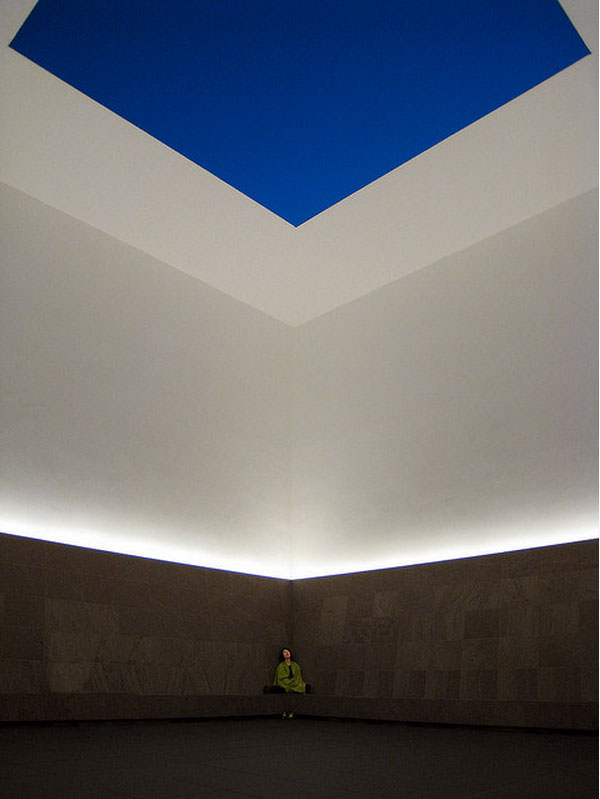
Still curious, I returned the next morning and sat again. The hole framed a crisp, deep blue Japanese winter sky. Suddenly a cloud floated past. Then some birds flew over.
The construction was such that the material forming the hole in the roof was tapered to almost nothing. This tapering produced the optical illusion — as you continued to stare — that the sky was pulled down to the very ceiling of the room. Standing on your tippy toes you could almost believe you could touch it. And when something moved past, it felt compressed and unreal.
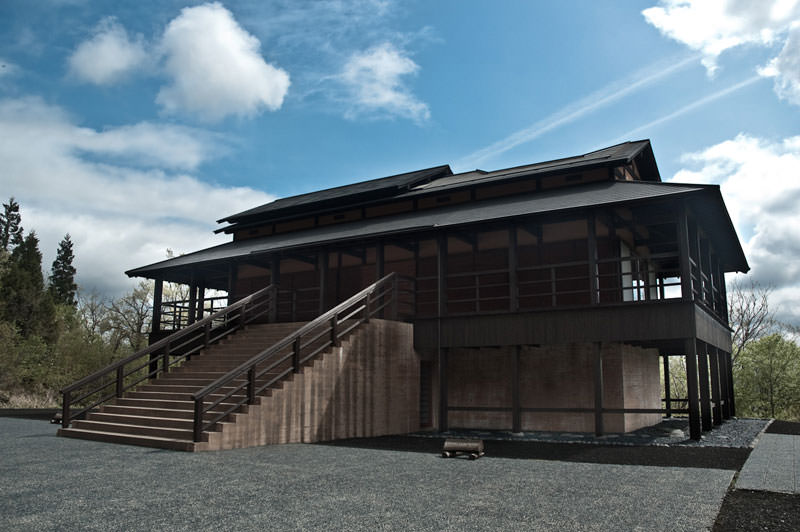
And so began my minor obsession with James’ work. I’ve spent the night in his house in Niigata2 — a stunning collaboration with Japanese architect Daigo Ishii3 in which you sleep in a twelve mat tatatmi room. At the touch of a button, the roof slides off the house and a sky viewing timed perfectly to sunrise and sunset begins. You lie there, dazed, witness to the majesty of a darkness (as the sun sets) and color gradation (as the sun rises) you’ve never before seen.
This past summer I traveled to Naoshima on pilgrimage to James’ installations in the Tadao Ando designed, Chichu Art Museum.4 And I’ve hunted down small collections of his less consuming light installations at various museums and galleries around the world.
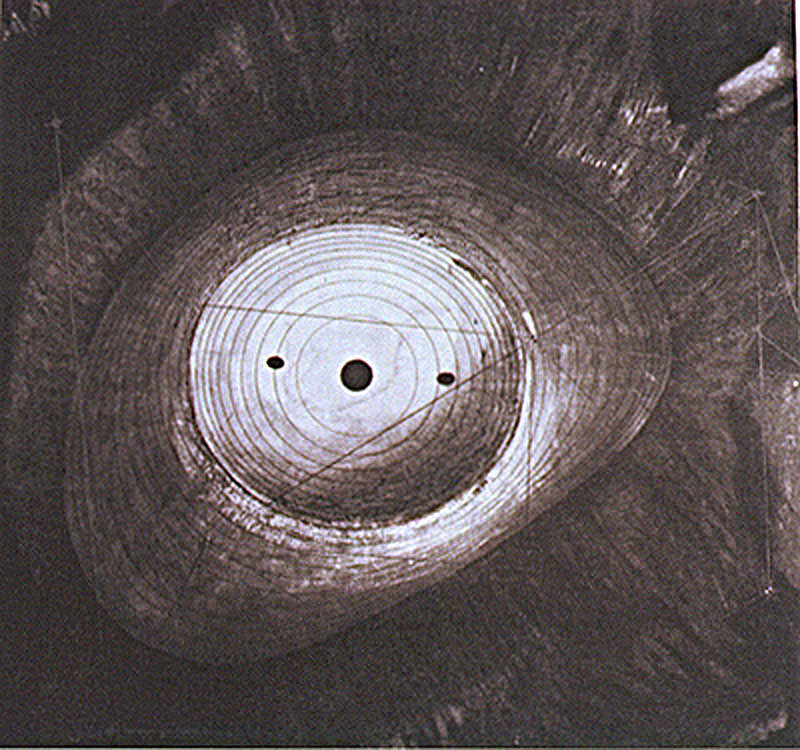
#Roden
It was within this decade long investigation of James’ work that I discovered his Roden project.5 Roden is the name of a crater in Arizona James bought in the 70s. It’s become an icon not just for his Life Work but for the ideal to which — I believe — many of us strive as creators. It is a myth — far larger than life in both ideological scope and physicality.
Here’s James’ description of the project:
At Roden Crater I was interested in taking the cultural artifice of art out into the natural surround. I did not want the work to be a mark upon nature, but I wanted the work to be enfolded in nature in such a way that light from the sun, moon and stars empowered the spaces … I wanted an area where you had a sense of standing on the planet. I wanted an area of exposed geology like the Grand Canyon or the Painted Desert, where you could feel geologic time. Then in this stage set of geologic time, I wanted to make spaces that engaged celestial events in light so that the spaces performed a “music of the spheres” in light. The sequence of spaces, leading up to the final large space at the top of the crater, magnifies events. The work I do intensifies the experience of light by isolating it and occluding light from events not looked at. I have selected different portions of the sky and a limited number of events for each of the spaces. This is a reason for the large number of spaces.
Did you read that? Then in this stage set of geologic time …
#Explorers
It’s with this work in mind I’d like to start a mailing list: The Roden Explorers Club.
It’ll be a little more private than posting on this site. A little more ephemeral, perhaps. Like a crater in the desert: there if you look on Google Maps, but usually out of sight.
I’d like for it to be a place for me to announce small projects built with a pinch of James’ ethos in mind. Somewhere to ask folks for feedback. Somewhere to share off-the-cuff thinking about the future of books and publishing. A place for you to hit ‘reply’ outside of the public spectacle of comments and tweets.
The mailing list will have almost nothing to do explicitly with Roden, of course. Roden is just a guiding star, far off in our desert sky.
If any of this interests you, then please consider joining me and becoming an Explorer. The messages will be infrequent, and you can unsubscribe at anytime.
Together we’ll hurtle out under the darkness of the interwebs towards whispers of who knows what. Hopefully joyful, joyfully hopeful, and, perhaps, a bit drunk.
So, see you out there?
Subscribe to the Roden newsletter
